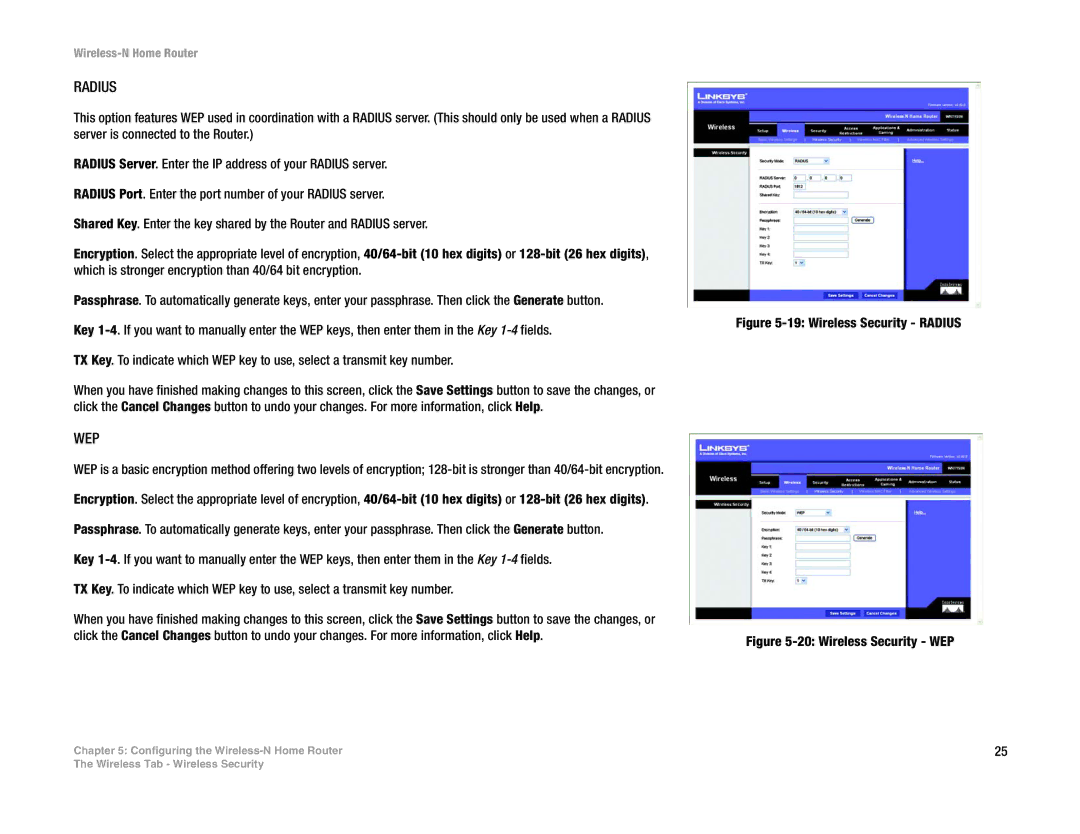
Wireless-N Home Router
RADIUS
This option features WEP used in coordination with a RADIUS server. (This should only be used when a RADIUS server is connected to the Router.)
RADIUS Server. Enter the IP address of your RADIUS server.
RADIUS Port. Enter the port number of your RADIUS server.
Shared Key. Enter the key shared by the Router and RADIUS server.
Encryption. Select the appropriate level of encryption,
Passphrase. To automatically generate keys, enter your passphrase. Then click the Generate button.
Key
TX Key. To indicate which WEP key to use, select a transmit key number.
When you have finished making changes to this screen, click the Save Settings button to save the changes, or click the Cancel Changes button to undo your changes. For more information, click Help.
WEP
WEP is a basic encryption method offering two levels of encryption;
Encryption. Select the appropriate level of encryption,
Passphrase. To automatically generate keys, enter your passphrase. Then click the Generate button.
Key
TX Key. To indicate which WEP key to use, select a transmit key number.
When you have finished making changes to this screen, click the Save Settings button to save the changes, or click the Cancel Changes button to undo your changes. For more information, click Help.
Chapter 5: Configuring the
Figure 5-19: Wireless Security - RADIUS
Figure 5-20: Wireless Security - WEP
25
The Wireless Tab - Wireless Security
